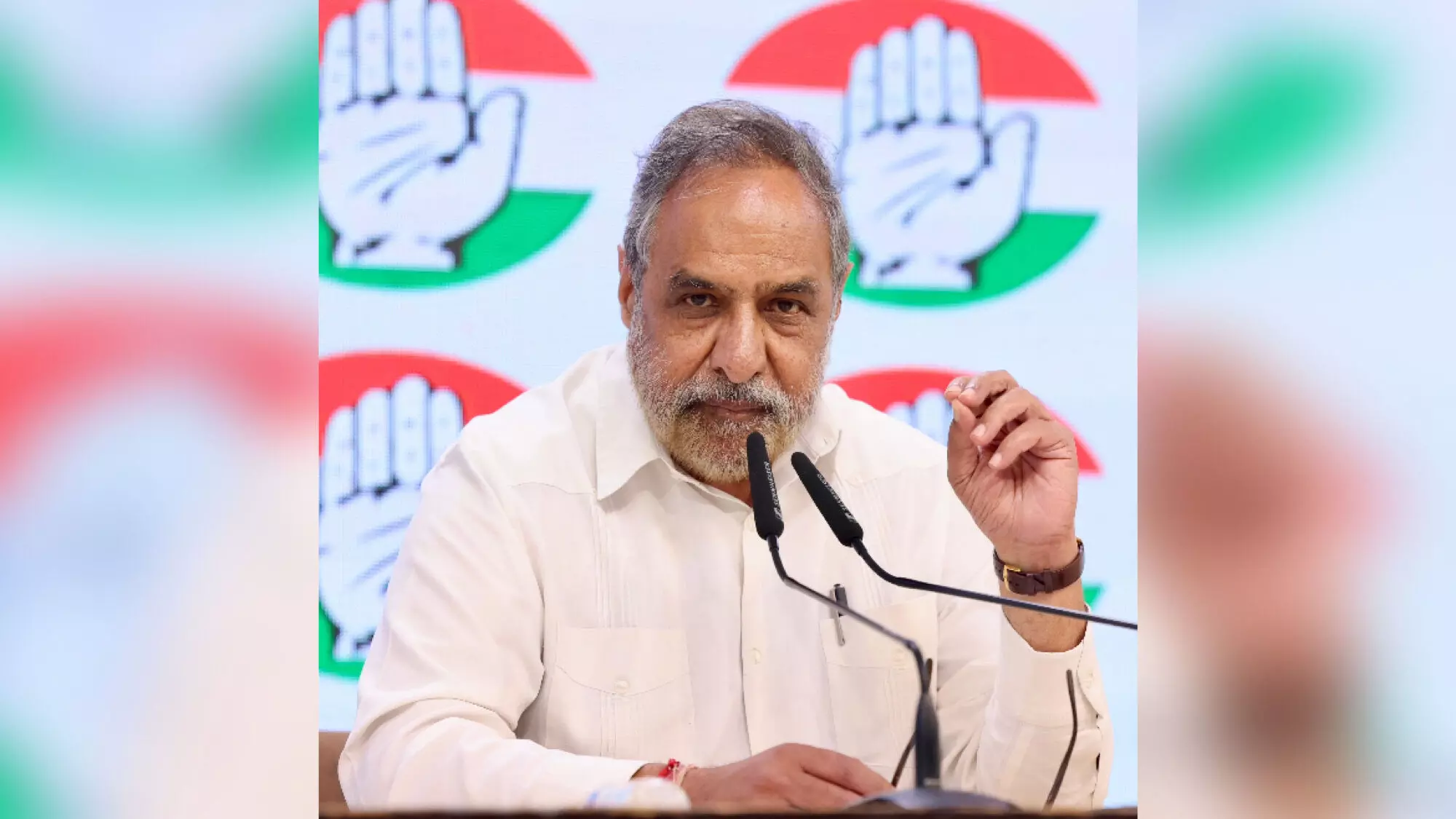US tariffs: Congress calls for consensus over trade deals, explore options with EU, Africa
Anand Sharma suggested that India must explore options for trade and go for agreements with the European Union, United Kingdom, Latin American, African and Gulf countries
By Newsmeter Network
New Delhi: Congress leader Anand Sharma calls for united front on US tariffs, wants alternative trade options with EU, Africa
New Delhi: The Congress called upon the government to take all stakeholders and political parties into confidence before any trade agreement on tariffs.
The party also stressed the need for protecting the interests of the agriculture, dairy, poultry and textile sectors while negotiating any trade deal. Negotiations and agreements must be balanced and respectful, the party insisted. It asserted that measures like the Minimum Support Price for various agriculture products, which are important for ensuring food security, must be protected at all costs.
‘Explore other options for trade’
Addressing a press conference at the AICC office here, Congress Working Committee member and former union minister for Commerce, Anand Sharma, also suggested that India must explore other options for trade and go for agreements with the European Union, the United Kingdom, Latin American, African and Gulf countries.
Sharma observed that what US president Donald Trump had done was “unfortunate” in the context of Indian and the world economy. He said there will be no winners in this “trade war”. He said it would be too much to expect that there will be any manufacturing revolution in the US after the imposition of tariffs on imports from all countries.
The issue with reciprocal tariff
The former Union Commerce Minister maintained that there is no concept of “reciprocal tariff” among the unequal countries. He said, the reciprocal tariff can be between equals and not between the rich and the poor countries. He said Trump’s decision did not spare even the least developed countries in the world. He pointed out, while the US has a 28 trillion dollar economy, India has only a 4 trillion dollar economy, with a huge disparity in populations also.
Sharma said, the unilateral imposition of tariffs goes against the principle of general consensus, which started first with the General Agreement on Tariffs and Trade (GATT), followed by the Uruguay Round of talks which led to the setting up of the World Trade Organisation (WTO). He said, since World War II, there has never been such a unilateral decision that has caused so much upheaval in the world economy.
The senior Congress leader hoped that there would be no hurried reaction and whatever reaction and response is made, it would keep the national interest in mind. He said, the reaction should befit the dignity of one of the largest economies in the world.
Referring to the “terms of reference” being prepared for a bilateral trade agreement, he said, the country should be taken into confidence and there must be a general consensus among all stakeholders and political parties. He cautioned that there should not be any such decision which will have a long-term adverse impact on the country’s economy.
No unilateral decision
Sharma said, any agreement must take into consideration the services sector, which will be in the interest of the country as services form an important pillar of India’s economy.
The CWC member observed that there should not have been any advance announcements about concessions before any negotiations. No concessions should have been given in advance, he said, adding, “all this should be bilateral and not unilateral”.
Moreover, he pointed out, Trump, so far, has not got the authority from the US Congress to provide any trade concessions. So, he can only impose tariffs and not provide any concessions.
Sharma suggested setting up a National Task Force consisting of people who are experienced in international trade and have been associated with WTO. He pointed out, it is no longer a unipolar but a multipolar world. He said, while India’s relationship with the US is strong, the country must look towards Europe, Africa, the Gulf and Latin American countries for trade agreements.
He said, the “World Trade War” will impact poor people across the world. At the same time, he added, nobody will be a winner and even the US will suffer losses.